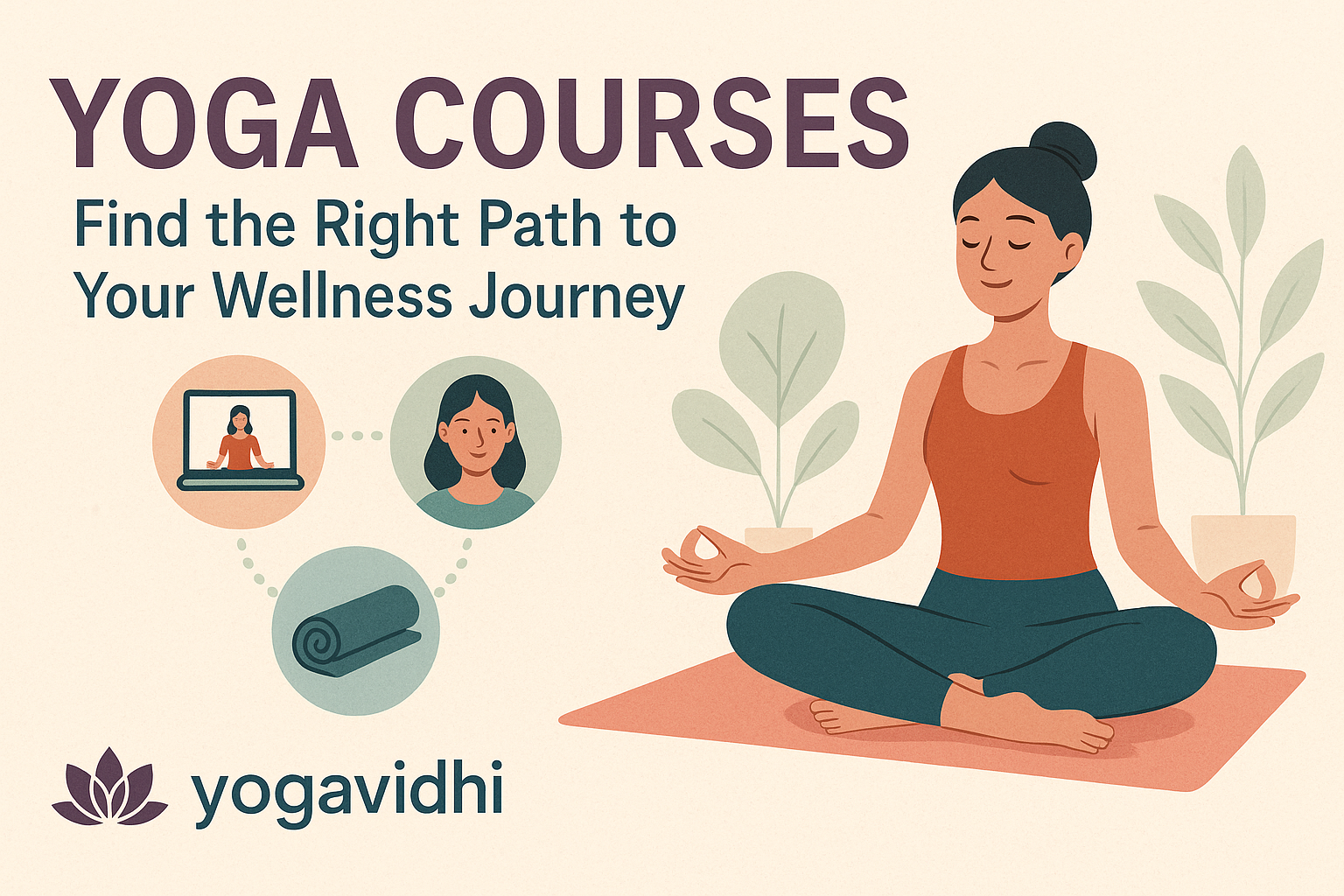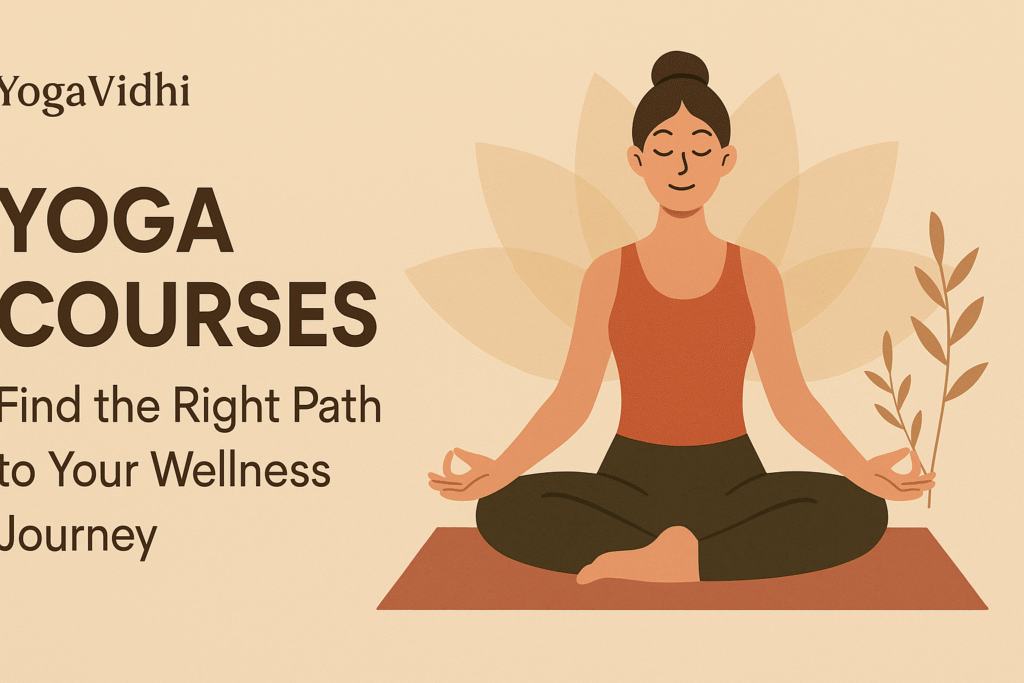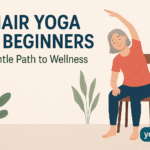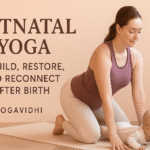In today’s fast-paced world, more people than ever are turning to yoga for balance, strength, and mental clarity. But starting your yoga journey or leveling up your practice can feel overwhelming without the right guidance. That’s where structured yoga courses come in.
Whether you’re a complete beginner, an experienced practitioner, or someone looking to teach yoga professionally, there’s a course tailored for you. In this guide, we’ll explore everything you need to know about yoga courses, including the types, benefits, how to choose the right one, and what to expect once you enroll.
Yoga courses cover a diverse array of options, from beginner-level introductions to advanced teacher training programs. These courses span various styles such as Hatha, Vinyasa, and Ashtanga, along with specialized practices like Prenatal Yoga and Yoga Therapy. Offered both online and in-person, they range from brief workshops to in-depth teacher training certifications.
Table of Contents
Why Choose a Yoga Course Over Self-Study?
While there’s no shortage of yoga tutorials on YouTube and social media, there’s a big difference between watching a video and joining a certified yoga course. Here’s why:
1. Structured Learning
Yoga courses are designed with a clear path of progression. You start with the fundamentals and gradually advance in poses, breathing techniques, and mindfulness.
2. Expert Guidance
Certified instructors correct your posture, answer questions, and help you avoid injury. This is especially helpful in beginner yoga courses or therapeutic yoga courses.
3. Community Support
Many yoga courses—especially group sessions or online cohorts—create a sense of community, offering accountability and encouragement.
4. Long-Term Motivation
It’s easier to stay consistent when you’re enrolled in a program with a schedule, milestones, and group support.
Types of Yoga Courses: Something for Everyone
The beauty of yoga lies in its versatility. No matter your age, body type, fitness level, or goal, there’s a yoga course tailored to you.
Based on Yoga Style
- Hatha Yoga Courses – Best for beginners focusing on gentle movements and deep breathing.
- Vinyasa Yoga Courses – Ideal for those who want a dynamic, flow-based practice.
- Ashtanga Yoga Courses – For the disciplined and physically strong practitioner.
- Iyengar Yoga Courses – Perfect for improving alignment using props and precision.
- Kundalini Yoga Courses – Combine movement, mantra, and meditation to awaken inner energy.
- Yin & Restorative Yoga Courses – Slow, meditative practices for flexibility and relaxation.
- Aerial Yoga Courses – A fun twist using hammocks to support your body through poses.
Based on Audience
- Yoga Courses for Beginners – Gentle and foundational programs.
- Prenatal and Postnatal Yoga Courses – Designed for expecting and new mothers.
- Senior Yoga Courses – Often chair-based and low-impact for joint safety.
- Kids’ Yoga Courses – Creative, playful, and engaging.
- Yoga for Men/Women Courses – Tailored to specific physiological needs.
Based on Goals
- Yoga for Weight Loss Courses
- Yoga for Anxiety and Stress Relief
- Yoga for Flexibility and Balance
- Yoga for Back Pain and Posture Improvement
Each of these yoga courses is curated with specific sequences, breathing exercises, and mindfulness practices to help you achieve your personal wellness goals.
| Category | Type of Yoga Course | Best For | Benefits |
| By Style | Hatha Yoga | Beginners, Seniors | Foundational postures, stress relief, improved flexibility |
| Vinyasa Yoga | Intermediate to Advanced Practitioners | Cardio workout, coordination, flow-based strength | |
| Ashtanga Yoga | Disciplined, Athletic Learners | Builds stamina, muscle tone, and discipline | |
| Iyengar Yoga | Alignment-focused Practitioners | Precision, posture correction, use of props | |
| Kundalini Yoga | Spiritual Seekers | Awakens energy, boosts mental clarity, emotional healing | |
| Yin Yoga | People Seeking Relaxation | Deep tissue release, flexibility, meditative calm | |
| Restorative Yoga | Stress Recovery, Injury Rehab | Nervous system healing, complete relaxation | |
| Aerial Yoga | Adventure Seekers, Fitness Enthusiasts | Fun, spine decompression, builds core strength | |
| By Audience | Yoga for Beginners | New to Yoga | Learn basics, build confidence, create foundation |
| Prenatal & Postnatal Yoga | Expecting/New Mothers | Safe movement, pelvic support, breath control | |
| Senior Yoga (Chair Yoga) | Older Adults | Gentle movements, improved mobility, reduced joint pain | |
| Yoga for Kids/Teens | Children & Adolescents | Improves focus, creativity, and emotional regulation | |
| Yoga for Men/Women | Gender-Specific Needs | Hormonal balance, strength, and flexibility targeted | |
| By Goal | Yoga for Weight Loss | Fitness & Fat Reduction Goals | Burns calories, improves metabolism, tones the body |
| Yoga for Anxiety & Stress Relief | Mental Health and Relaxation | Reduces cortisol, boosts mood, promotes mindfulness | |
| Yoga for Flexibility & Balance | Athletes, Dancers, Everyday Movers | Enhances mobility, prevents injuries, posture improvement | |
| Yoga for Back Pain/Posture | Office Workers, Those with Chronic Pain | Strengthens spine, eases back discomfort, improves alignment | |
| Teacher Training | 200-Hour YTTC | Aspiring Yoga Instructors | Foundation for teaching yoga, self-mastery |
| 300/500-Hour YTTC | Advanced Practitioners/Teachers | Deepens knowledge, enables specialization, opens career paths |
Online vs. Offline Yoga Courses: Which One is Better?
With the boom of digital wellness, many are opting for online yoga courses, but traditional in-studio classes still hold strong appeal. Let’s weigh the pros and cons:
Online Yoga Courses
- Flexibility to practice anytime, anywhere.
- Affordable pricing and often lifetime access.
- Great for self-motivated learners and those with tight schedules.
- Options like live Zoom classes or on-demand video libraries.
Top online platforms offering yoga courses include:
- Yoga International
- DoYogaWithMe
- Alo Moves
- Glo
Offline Yoga Courses
- In-person corrections and real-time feedback.
- Hands-on experience with props and group energy.
- Often includes community events, retreats, and workshops.
Ultimately, the best format depends on your lifestyle, learning style, and goals. Many students combine both for a hybrid approach.
Read More: Power Yoga: The Ultimate Practice to Transform Your Body and Mind
Read More: Chair Yoga for Beginners: A Gentle Path to Wellness
Yoga Teacher Training Courses (YTTC)
Thinking of becoming a certified yoga instructor? Yoga Teacher Training Courses are your next step.
What is a YTTC?
A Yoga Teacher Training Course is an intensive program designed to deepen your practice and teach others. The most common certifications include:
- 200-Hour YTTC – Foundation-level
- 300-Hour YTTC – Advanced training
- 500-Hour YTTC – Comprehensive master-level
Key Components of YTTC:
- Asanas (postures)
- Pranayama (breathing)
- Meditation
- Anatomy and physiology
- Yoga philosophy
- Teaching methodology
Most YTTCs are affiliated with Yoga Alliance, an internationally recognized certification body.
Career Paths After Completing YTTC:
- Yoga instructor at studios, gyms, or retreats
- Online yoga coach
- Corporate yoga trainer
- Specialization in prenatal yoga, yoga therapy, etc.
How to Choose the Right Yoga Course
With so many options, how do you pick the best yoga course? Here are some tips to help you decide:
1. Know Your Goals
Are you trying to lose weight, manage stress, increase flexibility, or become a teacher? Let your goal guide your choice.
2. Check Instructor Credentials
Look for certified instructors with experience in the style or audience you’re targeting.
3. Read Reviews and Testimonials
Genuine feedback helps you assess course quality and instructor style.
4. Consider Time and Budget
Some courses last a few weeks, others span months. Know what fits into your lifestyle and wallet.
5. Look for Free Trials or Sample Classes
Many online yoga courses offer trial periods. Take advantage before committing.
What to Expect During a Yoga Course
Each yoga course is different, but here’s what you’ll typically experience:
- Warm-ups and breathwork
- Core asana practice
- Cool down with stretches or guided relaxation
- Mindfulness or meditation session
- Assignments or journaling (common in teacher training)
In online courses, you’ll also get downloadable resources, video libraries, and community forums.
Real-Life Transformations
Thousands of people have transformed their lives through yoga courses. From healing chronic pain to overcoming anxiety, these stories inspire action.
“I joined a beginner yoga course just to stretch. A year later, I’m calmer, more focused, and 10 kg lighter.”
– Neha S., Mumbai
“I never thought I’d teach yoga at 50. My 200-hour YTTC changed my life!”
– Rajiv M., Bangalore
Tips to Maximize Your Yoga Course Experience
- Stick to a schedule – Consistency is key.
- Create a calm space – Whether at home or in a studio.
- Keep a yoga journal – Track your growth and insights.
- Pair yoga with mindful eating – Fuel your body well.
- Celebrate small wins – Every stretch counts.

Conclusion: Your Yoga Journey Starts Now
Yoga is not just an exercise—it’s a lifelong journey of self-discovery, health, and inner peace. With the right yoga course, you can deepen your practice, find healing, and even empower others. Whether you’re a beginner or ready to become a certified teacher, there’s a course out there for you.
So don’t wait. Take that first step today.
Call to Action
Ready to begin? Explore top-rated yoga courses now.
Want expert guidance? Book a free trial class today.
Dreaming of teaching yoga? Download our YTTC brochure and start your teacher training journey!
FAQ:
Q. What is the best yoga course for beginners?
Ans: The best yoga course for beginners is usually a Hatha Yoga or Beginner Yoga Course that focuses on foundational postures, breathing techniques, and slow-paced movement. These courses are designed to build confidence, improve flexibility, and help you learn the basics at your own pace.
Q. Are online yoga courses as effective as in-person classes?
Ans: Yes, online yoga courses can be just as effective, especially if they’re led by certified instructors and offer structured progression. They provide flexibility to practice anytime and anywhere. However, beginners or those needing hands-on correction may benefit from combining both online and offline formats.
Q. How do I choose the right yoga course for my goals?
Ans: Start by identifying your goal—whether it’s weight loss, stress relief, flexibility, or becoming a certified instructor. Then choose a course that matches your fitness level, preferred yoga style, and schedule. Reading reviews and checking the instructor’s credentials can also help you make an informed decision.
Q. What is a Yoga Teacher Training Course (YTTC)?
Ans: A Yoga Teacher Training Course (YTTC) is a professional program that prepares you to become a certified yoga instructor. It typically covers anatomy, postures, philosophy, and teaching methodology. Popular options include 200-Hour, 300-Hour, and 500-Hour YTTC, often accredited by Yoga Alliance.
Q. Can yoga courses help with anxiety and stress?
Ans: Absolutely. Many yoga courses for anxiety focus on calming practices like breathwork, gentle stretching, and guided meditation. Styles such as Yin Yoga, Restorative Yoga, and Kundalini Yoga are particularly effective in managing stress, improving sleep, and promoting emotional balance.
Q. Which course is best for yoga?
Ans: There are various types of yoga courses available depending on the level of study and duration. For undergraduate programs, you can pursue a Bachelor of Naturopathy & Yogic Science, which typically takes 3 years to complete. Another option at the undergraduate level is the UG Diploma in Yoga Education, which is a 1-year course. For postgraduate studies, you can choose a Master of Arts (MA) in Yoga or a Master of Science (MSc) in Yoga, both of which usually have a 2-year duration.
Q. How many years is a yoga course?
Ans: Course Overview
The One-Year Diploma in Yoga by Yoga & Happiness is a comprehensive, government-recognized program designed for dedicated yoga practitioners and future professionals. It is perfect for individuals aiming to build a career in yoga instruction, wellness consulting, or advanced yogic education.
Q. What is yoga course?
Ans: Yoga courses are structured learning programs that teach individuals the principles, philosophy, and techniques of Yoga. The syllabus typically includes a range of yoga postures, emphasizing proper alignment, breathing practices (pranayama), and the benefits associated with each pose.
Q. How many types of yoga courses are there?
Ans: There are eight distinct styles of yoga, including Hatha yoga, Vinyasa yoga, Bikram yoga, Sivananda yoga, Iyengar yoga, Ashtanga yoga, and Yoga Nidra.
Declaration Note:
We use third-party videos and images on https://yogavidhi.com/ for educational and illustrative purposes. All rights belong to their respective owners. No copyright infringement is intended.



